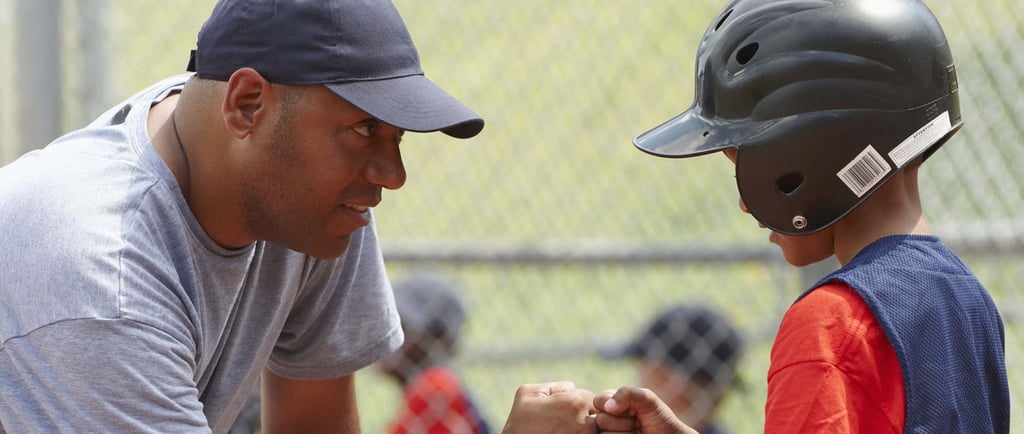What Age Should Players Start Taking Private Hitting Lessons?
Thinking about private hitting lessons for your child? Learn the ideal age to start, what to expect, and how to know if your athlete is ready for individualized coaching.


Most players are ready for private instruction between the ages of 9 and 11, but it varies. Some younger athletes may benefit from short sessions that focus on movement patterns and swing basics. Others may need more time to mature mentally and physically before private coaching makes sense.
Here’s a breakdown by age:
Ages 6–8: Introduction Phase
Focus: Fun, athletic movement, hand-eye coordination
Best Fit: Group clinics, camps, or short “fun-focused” lessons
Not Ideal For: High-volume private instruction
At this age, kids should be learning how to move well and love the game. A few short sessions with the right coach can help build confidence, but private lessons shouldn’t be intense or technical.
Ages 9–11: Foundational Phase
Focus: Mechanics, body control, swing sequence
Best Fit: Weekly or biweekly private sessions
Ideal Time to Start: Especially for motivated or advanced players
This is the most common entry point for private instruction. Players can focus longer, follow coaching cues, and start developing repeatable swing patterns.
Ages 12–14: Refinement Phase
Focus: Power development, pitch tracking, adjustability
Best Fit: Regular private sessions paired with strength or team work
Key Opportunity: Build competitive advantages before high school
At this level, private instruction can help separate a player from the pack — especially when integrated with physical training and mental approach work.
Ages 15+: Performance Phase
Focus: In-game results, approach, high-level adjustments
Best Fit: Tailored, data-driven training sessions
Goal: Prepare for showcase play, varsity, and college-level competition
Older athletes need efficient, targeted work. Private lessons at this stage are highly individualized and often include video breakdowns, blast motion data, and competitive drills.
Signs Your Athlete May Be Ready for Private Hitting Lessons
Not sure if your child is ready? Look for these indicators:
They consistently show interest in improving their swing
They can stay focused for 30–45 minutes without zoning out
They’ve developed basic hand-eye coordination and body awareness
They’re asking questions or frustrated with inconsistent results
They want more than what they’re getting from team practices alone
If your athlete is highly motivated — and coachable — private training can accelerate their growth dramatically.
Common Mistakes Parents Make With Lessons
Even with the best intentions, it’s easy to make a few missteps when starting private hitting sessions:
Starting too young and expecting rapid results
Overloading with lessons (3–4x/week) and burning the player out
Focusing only on mechanics and ignoring movement quality
Expecting the coach to “fix” everything overnight
Skipping physical development (strength, mobility)
The most successful athletes combine private instruction with smart scheduling, strength work, and time for play.
How Often Should You Do Private Hitting Lessons?
Consistency beats volume.
For most youth players, 1x per week is ideal. That allows time to absorb instruction, practice on their own, and avoid burnout. More advanced or competitive players may train 2x per week during the off-season or in preparation for showcases.
Tip: It’s better to train weekly for 6–8 months than to cram 3 lessons per week for just one.
What to Look For in a Good Hitting Coach
Not all private instructors are equal. When choosing a coach, look for:
A focus on long-term development over quick fixes
Strong communication with both player and parent
Use of video, tech, and objective feedback tools
A style that matches your athlete’s personality and learning style
A coach who teaches athletic movement, not just hand drills
At Swing Lab, our coaches work with each athlete’s unique movement profile to build a swing that’s efficient, powerful, and repeatable — not a cookie-cutter model.
Final Thoughts
So, what age should players start taking private hitting lessons?
There’s no magic number — but most players benefit from individualized instruction between ages 9 and 11, when they’re mentally ready and physically aware enough to apply coaching.
Private lessons can accelerate development, build confidence, and unlock potential — but only when done with the right coach, at the right time, and with the right mindset.
Wondering if your athlete is ready for hitting lessons? Contact Swing Lab today and let’s talk through your player’s goals, movement, and next steps for development.
from: getty images
Excuses don't get walk-offs
get in the lab
info@lexasport.com
+1 (972) 638-0872
© 2025. All rights reserved.
NTX Swing Lab is a division of LEXA Sport
